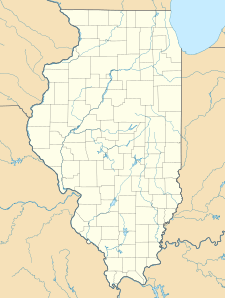Sand Prairie-Scrub Oak State Nature Preserve facts for kids
Quick facts for kids Sand Prairie-Scrub Oak State Nature Preserve |
|
|---|---|
|
IUCN Category V (Protected Landscape/Seascape)
|
|
| Location | Mason County, Illinois, USA |
| Nearest city | Kilbourne, Illinois |
| Area | 1,460 acres (5.9 km2) |
| Established | April 1970 |
| Governing body | Illinois Department of Natural Resources |
The Sand Prairie-Scrub Oak State Nature Preserve is a special natural area in Illinois, USA. It used to be called the Mason County State Wildlife Refuge and Recreation Area. This preserve is a dedicated state nature preserve, meaning it's protected to keep its natural environment safe.
It covers a large area of 1,460 acres (about 591 hectares). You can find it in western Mason County, close to the town of Kilbourne, Illinois. The preserve is home to unique parts of the ecosystem described in its name.
What is the Sand Prairie-Scrub Oak Preserve?
The Sand Prairie-Scrub Oak Nature Preserve is a mix of different sandy areas. These include dry sand prairie, dry sand savanna, and dry sand forest. These unique environments are important for many plants and animals.
Plants and Trees You Can Find
In the savanna and forest parts of the preserve, you can find different kinds of oak trees. These include the black oak and blackjack oak. You might also see some mockernut trees.
In 2015, experts found something very exciting here. They discovered the first dwarf chinkapin oak ever identified in Illinois. This was a big find for the state!
Other special trees in the preserve include black hickory. These trees are thought to be some of the northernmost black hickory trees growing naturally. You can also find prairie grasses like little bluestem. Sandy plants like the eastern prickly pear cactus also grow here.
How the Preserve is Managed
The Sand Prairie-Scrub Oak Preserve became a State Nature Preserve in April 1970. Today, the Illinois Department of Natural Resources (IDNR) manages it.
The preserve does not have staff working on-site all the time. Instead, it is managed as a separate part of Sand Ridge State Forest. This is a larger protected area located in the same county.


